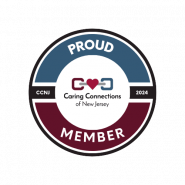In today’s interconnected world, social interactions have become an integral part of our lives. But for some individuals, these seemingly ordinary interactions can trigger an overwhelming sense of fear and discomfort. Welcome to the realm of Social Anxiety Disorder (SAD), a condition that affects millions worldwide. In this blog, we will delve into the depths of SAD, uncover its symptoms, and provide guidance on recognizing and understanding this often misunderstood mental health issue.
Understanding Social Anxiety Disorder
Social Anxiety Disorder, commonly known as social phobia, is a mental health condition characterized by an intense and persistent fear of social situations. People with SAD often experience extreme self-consciousness, fearing judgment, embarrassment, or humiliation by others. This anxiety can be so debilitating that it hinders their ability to engage in everyday activities, resulting in significant distress and a diminished quality of life.
Recognizing the Symptoms
Recognizing the symptoms of Social Anxiety Disorder is crucial for early intervention and effective management. Here are some key signs to look out for:
- Intense fear of social situations, such as public speaking, attending parties, or interacting with strangers.
- Avoidance of social gatherings and activities.
- Excessive self-consciousness and worry about being judged or criticized.
- Physical symptoms like rapid heartbeat, sweating, trembling, or nausea before or during social encounters.
- Overanalyzing and obsessing about past social interactions.
- Difficulty making eye contact or speaking in front of others.
Impact on Daily Life
Living with Social Anxiety Disorder can profoundly affect various aspects of a person’s life. Individuals with SAD may experience:
- Difficulty forming and maintaining relationships.
- Challenges in academic or professional settings.
- Isolation and feelings of loneliness.
- Substance abuse as a coping mechanism.
- Lowered self-esteem and self-confidence.
Seeking Support and Treatment
If you or someone you know is struggling with Social Anxiety Disorder, remember that help is available. Here are some effective strategies for managing and overcoming SAD:
- Therapy: Cognitive-Behavioral Therapy (CBT) and exposure therapy have shown positive results in treating SAD.
- Medication: In some cases, medication like selective serotonin reuptake inhibitors (SSRIs) may be prescribed.
- Self-help techniques: Breathing exercises, mindfulness, and gradual exposure to social situations can help reduce anxiety.
- Support groups: Connecting with others who share similar experiences can provide valuable support and encouragement.
Embracing Empowerment
While Social Anxiety Disorder can feel overwhelming, it’s important to remember that you are not alone. With the right support and strategies, it is possible to regain control and lead a fulfilling life. Here are a few empowering tips to consider:
- Educate yourself about SAD to better understand your condition.
- Practice self-care and prioritize your mental health.
- Challenge negative thoughts and replace them with positive affirmations.
- Set realistic goals and celebrate your achievements.
- Surround yourself with a supportive network of friends and loved ones.
Social Anxiety Disorder may cast a shadow over social interactions, but with awareness, understanding, and proper treatment, individuals can learn to overcome its challenges. By recognizing the symptoms, seeking support, and embracing empowerment, those living with SAD can break free from the confines of anxiety and step into a world of newfound confidence, connection, and fulfillment.



